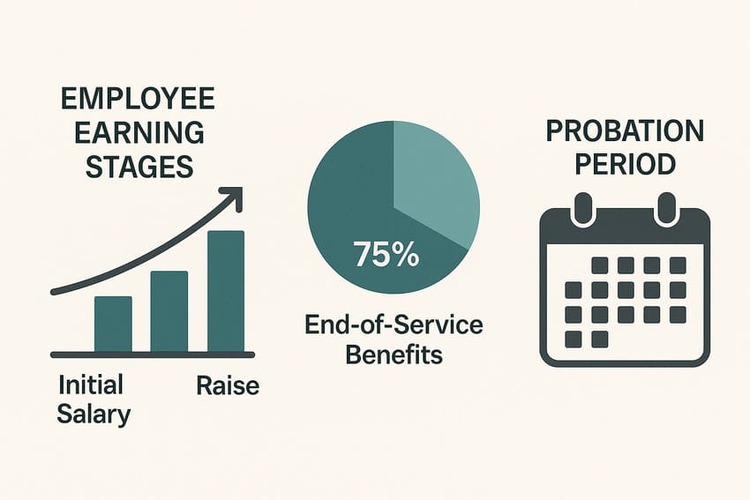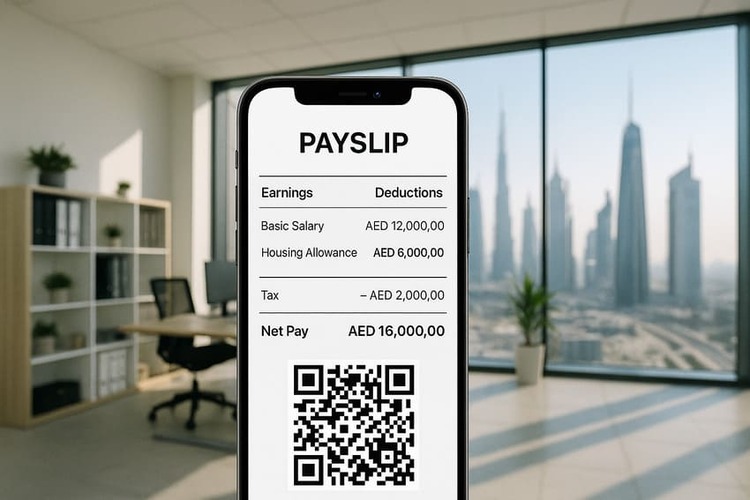Entering 2025, the UAE introduced significant revisions to its labour law—designed to empower employees, clarify employer obligations, and modernize workplace practice. Whether you’re in Dubai, Abu Dhabi, or anywhere else in the UAE, understanding these changes isn’t optional—it’s essential. Navigating the new UAE employment law not only protects your rights but helps you stay ahead in your career and ensures compliance with evolving regulations. The new law is supported by executive regulations and cabinet resolutions, which detail its implementation and ensure legal compliance.
A New Era: What’s Changing in UAE Labour Law?
The UAE is ushering in a new era for the workplace with the introduction of Federal Decree Law No. 33 of 2021, a landmark update that redefines labour relations across the country. This new UAE labour law is designed to modernize the way employers and employees interact, ensuring greater legal clarity and flexibility for all parties involved.
One of the most significant shifts is the move from unlimited term contracts to fixed term contracts, making employment agreements more transparent and predictable. This change impacts every sector, from bustling retail companies to domestic workers and the broader private sector. The law also introduces more adaptable working hours and flexible employment arrangements, reflecting the evolving needs of today’s workforce.
The Ministry of Human Resources and Emiratisation (MOHRE) is at the heart of these reforms, overseeing the implementation and enforcement of the new law. Whether you’re an employer or employee, understanding these updates is crucial to remain compliant and to take full advantage of the opportunities the new law provides. The new UAE labour law is not just about rules—it’s about building a fairer, more dynamic, and future-ready workplace for everyone in the UAE.
Gratuity Revamp: Smarter & Fairer

One of the most anticipated changes in the UAE labour law changes 2025 is the modification to end-of-service gratuity (EOSG):
- Flexible accrual: Workers now earn gratuity after just 6 months, rather than a year—newbies benefit sooner.
- Pro-rata calculations: Those leaving before the 1-year mark now get EOSG based on actual months worked (e.g., 9 months yields 3/4 of the full amount).
- Higher ceilings on EOSG: For high earners, gratuity payouts are now capped at 1.5 years of their salary (up from the previous 1‑year limit).
Under the new law, gratuity cannot be withheld even if an employee forfeited their position due to summary termination. This ensures that all workers receive their end-of-service benefits fairly, regardless of the reason for termination.
What this means: Whether you’re switching jobs after six months or staying long-term, EOSG is now fairer, more transparent, and quicker to access.
Clearer Probation Rules
Probationary terms have always caused confusion—but the new UAE employment law clarifies things:
- Maximum 6 months on probation.
- Employers must issue a formal probation period agreement
- Dismissals during probation now require a probation period notice of 30 days for termination, unless there is gross misconduct.
Why it matters: You can no longer be dismissed arbitrarily during probation. The clearer rules protect new hires and build trust.
Flexible Contracts & Gig Work

As the UAE evolves into a major gig economy hub, 2025 laws acknowledge this trend.
- Fixed‑term and part‑time contracts now have clearer definition and application. The law now recognizes various work models, including job sharing and temporary work, in addition to fixed-term and part-time contracts.
- Enhanced guidelines protect freelancers, gig workers, and project-based staff doing work through platforms like Careem or Talabat.
Existing employees on unlimited term contracts must transition to the new fixed-term contract system within the legal deadline.
What workers gain: Greater clarity around contracts, fairer working hours, and stronger protection—especially for those working outside traditional corporate structures.
Digital Payslips & Enhanced Transparency

In line with the UAE’s digital transformation, the new UAE employment law requires:
- Payslips delivered digitally—via email, tablet, or secure systems.
- Must include itemized breakdowns: basic salary, allowances, overtime pay, deductions, leave balance, and overtime.
Why it matters: Workers get clarity into their pay and career progress—perfect for visa renewal, portability, or financial planning.
Leave Entitlements: More Time for You
The new UAE labour law brings a fresh approach to employee benefits, especially when it comes to leave entitlements. Employees now enjoy enhanced maternity leave—60 calendar days in total, with 45 days at full pay and the following 15 days at half pay. This ensures that new mothers have the support they need during a crucial time.
But the changes don’t stop there. The law introduces parental leave, compassionate leave, and even study leave, giving employees more options to balance their professional and personal lives. Annual leave and rest days are clearly defined, and flexible work arrangements are encouraged, making it easier than ever to achieve a healthy work life balance.
A major step forward is the law’s commitment to equal pay for men and women performing the same work, reinforcing fairness and equality in every workplace. Employers are now required to update their employment contracts and HR policies to reflect these new entitlements, ensuring that all employees benefit from the latest protections and benefits under the new UAE labour law.
New Termination Clauses & Notice Requirements
Updates around termination in 2025 ensure a fairer process for employees:
- Notice periods: Depending on tenure, employers must provide:
- 30 days’ notice for up to 5 years of service.
- 60 days’ notice for more than 5 years.
- Final salary must be paid in full on termination—no delays.
- Special provisions protect pregnant workers, those on maternity leave, and individuals on medical leave.
- Termination must be based on legitimate reasons, such as non-performance or redundancy, and summary dismissal is only allowed under specific legal grounds.
- Protections apply to employees during pregnancy or maternity leave, and summary dismissal does not affect end-of-service gratuity entitlements.
- If an employer terminates an employee in breach of legal obligations, non-compete clauses may become unenforceable.
- When a new employer hires an employee during or after probation, they may be responsible for certain recruitment costs.
What employees gain: More time to handle transitions, better severance clarity, and stronger protection for vulnerable demographics.
Power to Resolve Disputes Faster
The UAE labour law changes 2025 include faster, more transparent dispute resolution:
- Cases must be filed within 3 months of issue (shortened from 6).
- Virtual hearings and dedicated labour dispute portals help expedite resolution.
- Labour disputes that are not resolved through initial channels can be escalated to UAE labour courts.
- Fines for non-compliance from employers are now stricter.
- Cases involving larger claims or complex issues may be referred to the competent court for final resolution.
What workers benefit from: Quicker justice, fewer delays, and a stronger sense of fairness in the system.
Daily Working Hours & Wellness
Employee welfare received a boost in 2025:
- Maximum working hours set at 8 per day, unless the contract specifies otherwise. Exceptions to this limit are allowed only in exceptional circumstances, as defined by law.
- Work hours may be adjusted in cases of exceptional circumstances, but must remain within legal limits.
- Remote working arrangements such as hybrid models recognized with protections.
- Wellness programs and flexible schedules now encouraged; no deductions for minor absences.
Why this matters: Better work-life balance, clearer boundaries, and support for mental health.
Digital Health Records & Wellness Benefits
Continuing push for digitalization:
- Employers must issue digital health certificates—including COVID or flu vaccination status when relevant—which must be issued by a recognized medical authority.
- Annual health checkups required for high-risk jobs.
- Ongoing mental health support is encouraged.
Impact: Modern, safe workplaces where employee well-being is a legal priority.
Wage Protection Program (WPS) Enhancements
The WPS underwent major improvements in 2025:
- Full compliance with mandatory digital salary transfers via banks or fintech.
- Hefty penalties for delays or underpayment.
- Workers can lodge complaints simply through WPS dashboards.
Additionally, the law allows the Cabinet, upon the Minister’s proposal and in coordination with relevant authorities, to set or revise the minimum wage for workers, ensuring fair compensation.
What employees gain: Faster, transparent, and fully traceable salary payments.
Inclusive Gender & Protection Policies

The new UAE employment law strongly addresses inclusivity:
- Increased maternity leave (60 days paid + 30 unpaid).
- Career breaks protected for women returning from maternity leave.
- Equal pay provisions for equal roles.
- The law prohibits discrimination based on national origin and social origin.
- Protections against sexual harassment and psychological violence are now explicitly covered.
- Special mention of protections for LGBTIQ+ employees in the private sector (without altering public stance).
- Members of the armed forces are exempt from certain employment law provisions.
A more fair, inclusive workplace—regardless of gender, health, or lifestyle.
Compliance Made Simple: What Employers & Employees Must Do
Staying compliant with the new UAE labour law is essential for both employers and employees. For employers, this means reviewing and updating all employment contracts, policies, and procedures to align with the latest legal requirements. Any changes to working hours, salary, or job title must be communicated to employees in writing, ensuring transparency and legal compliance.
Employees should familiarize themselves with their rights and obligations under the new law, including entitlements to leave, notice periods, and end of service gratuity. The law now requires a minimum notice period of 14 days for termination during the probation period, and at least 30 days’ notice after probation ends. Understanding these notice periods and the updated rules around end of service gratuity is key to protecting your interests.
Both employers and employees can seek guidance from the Ministry of Human Resources or consult with HR experts to ensure they remain compliant and avoid any potential legal trouble. By proactively adapting to the new law, everyone can contribute to a positive, productive, and legally sound work environment—supporting the UAE’s ongoing growth and competitiveness.
What These Changes Mean for You
These 2025 updates aren’t just legal jargon—they have real-life impact:
| Your Situation | Impact |
|---|---|
| You’re early in a job | Gratuity now phases in after 6 months—no need to wait a year. |
| On probation? | You can’t be terminated without cause or notice. |
| Freelancers or part-time | Now have contract clarity and labour protection fit for the gig era. Certain employment actions, such as contract changes, may require the worker’s written consent. |
| Worried about pay history | Digital payslips WPS data make your financial history verifiable. |
| Concerned about health | Required digital health certifications and wellness expectations. |
| Family planning? | Longer maternity leaves and better reentry options post-pregnancy. Parental leave is available within six months of a child’s birth. |
| Unused leave? | Carrying forward unused leave requires the employer’s approval. |
FAQ’s
1. What are the major changes in UAE labour law for 2025?
Key changes include revised gratuity payments, new flexible work contracts, updated probation rules, digital payslips, and stronger termination protections. Understanding your employment contract is key to navigating the new UAE labor environment. For those interested in changes impacting tenants, you can learn more about the Dubai Rent Increase Notice 2025 and how rent regulations will affect both tenants and landlords.
2. How has the gratuity system changed in UAE for 2025?
Gratuity is now calculated based on a more pro-employee model, with no cap on years of service and improved end-of-service entitlements.
3. What is the new rule for probation periods in the UAE?
Employers must now give a 14-day notice for termination during probation. Employees must give one month’s notice to resign if leaving the country.
4. What types of employment contracts are allowed in the UAE in 2025?
UAE now allows flexible, part-time, temporary, and freelance contracts alongside standard full-time ones, offering greater flexibility for both parties. All employment contract types are governed by the UAE labor law, ensuring that both employers and employees are protected under the latest regulations.
5. Are digital payslips mandatory in the UAE now?
Yes. From 2025, employers must issue itemized digital payslips, ensuring transparency and ease of record-keeping for employees.
6. What are my rights if I’m terminated under the new UAE labour laws?
Terminations now require justifiable cause, and unfair dismissals may lead to employee compensation under updated legal guidelines. UAE labor laws protect employees from unfair dismissal, reinforcing employee rights in the UAE labor market.
7. Can I work two jobs legally under the new UAE labour law?
Yes. With the proper work permits, you can hold multiple part-time jobs under the UAE’s new flexible employment system.
8. How do the UAE labour law changes impact women and maternity leave?
The new law strengthens women’s workplace rights, including extended maternity leave and protection from termination during pregnancy.
9. How do these updates affect expats working in Dubai?
Expats benefit from clearer contracts, stronger worker protections, and easier processes for remote and freelance work across UAE sectors, including access to residential projects in Dubai.
10. Where can I check if my UAE employer complies with the new labour laws?
You can verify employer compliance via the MOHRE (Ministry of Human Resources & Emiratisation) portal or seek help through registered HR consultants. UAE businesses must ensure compliance with the latest labor law requirements to avoid penalties and maintain a fair workplace under UAE labor regulations.
Knowledge Is Power
These reforms reflect a modern, employee-centric future for the UAE job market. Staying informed isn’t just smart—it’s essential. Know your rights, understand new protections, and prepare to secure your career in a fast-moving workplace.






